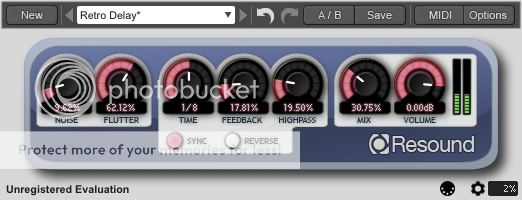Sequent 1.3.3 for Mac OS X, Windows, and Linux is now available. This version add the following fixes and features:
- (feature) Keyboard entry of rotary parameter values. Rotary controls can now be typed directly into by clicking on the text value below the control.
- (improvement:Mac OS X) Installer and all installed components are now signed in compliance with Mac OS X 10.8's Gatekeeper system.
- (improvement:Linux) When using the JACK audio system in standalone mode, the JACK Transport now syncs Sequent's tempo, start/stop status, and playhead location.
- (improvement) Step response on the filter, distortion, pan, and delay module parameters has been significantly reduced to allow for tighter control of sequenced automation.
- (improvement) Changing sequencer patterns via MIDI keyboard can no longer cause audio glitches when using a realtime audio driver.
- (fix) The Master sequencer will now correctly follow a host's PPQ position, and restart in response to a host's transport restarting.
- (fix:RTAS) Fix for the right-channel muting when bypassing in Pro Tools when used on a mono to stereo track.
- (improvement) Significantly improved UI response speed; reduced CPU usage when parameters are automated whilst the UI is open.
- (improvement:Windows) Removed C++ runtime libraries redistributable requirement for RTAS plug-ins. The installer no longer installs the C++ runtime library redistributable components when installing the RTAS plug-ins.
- (improvement) Routing and sequencing windows are now lighter and clearer.
- (improvement) Factory presets now use a compressed pattern format, which are significantly smaller, and so improves preset loading and search times.








